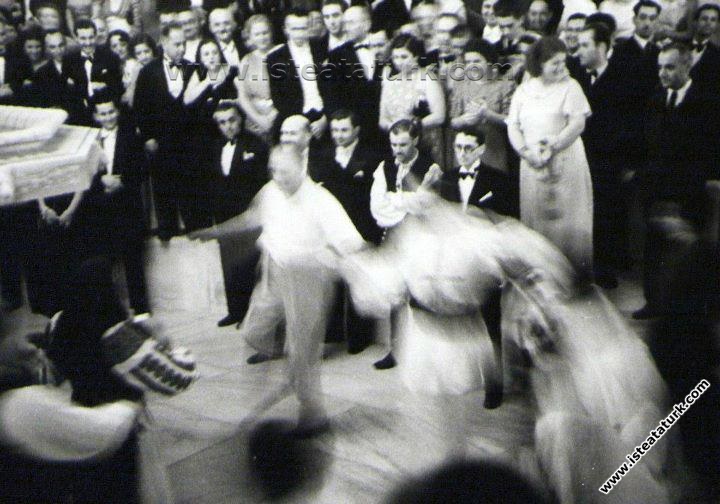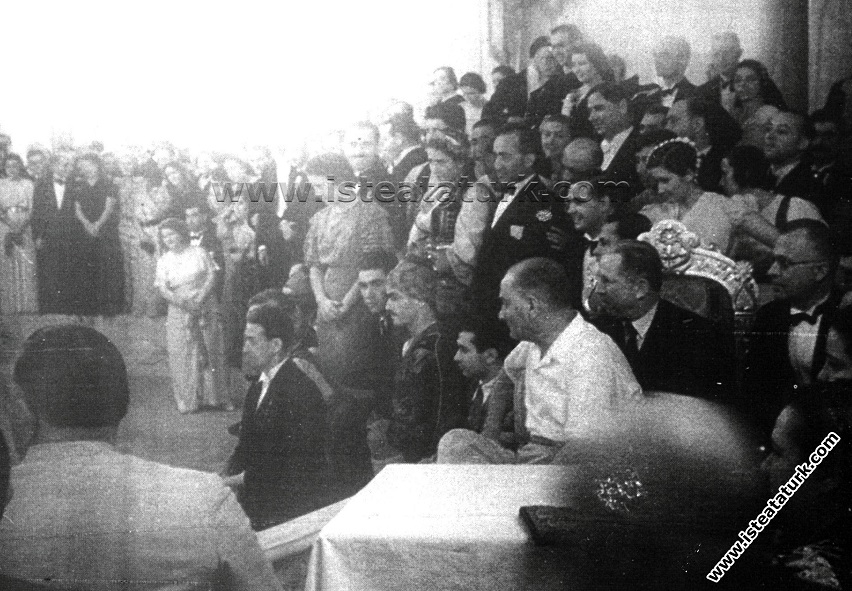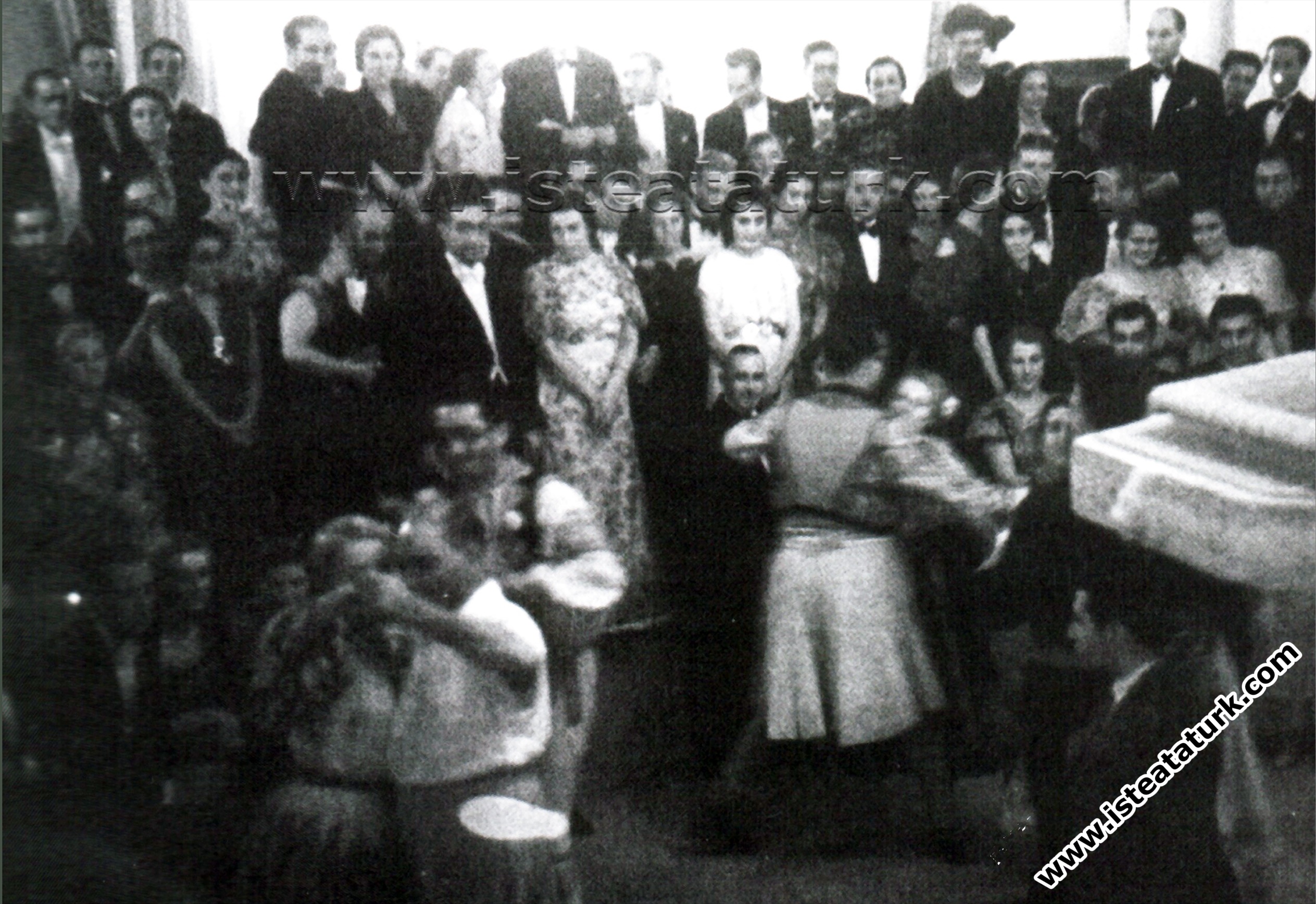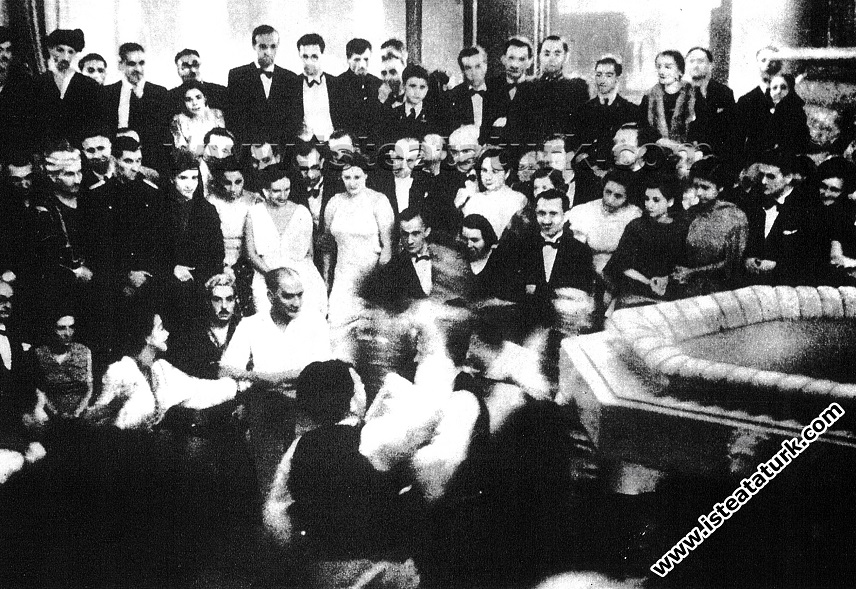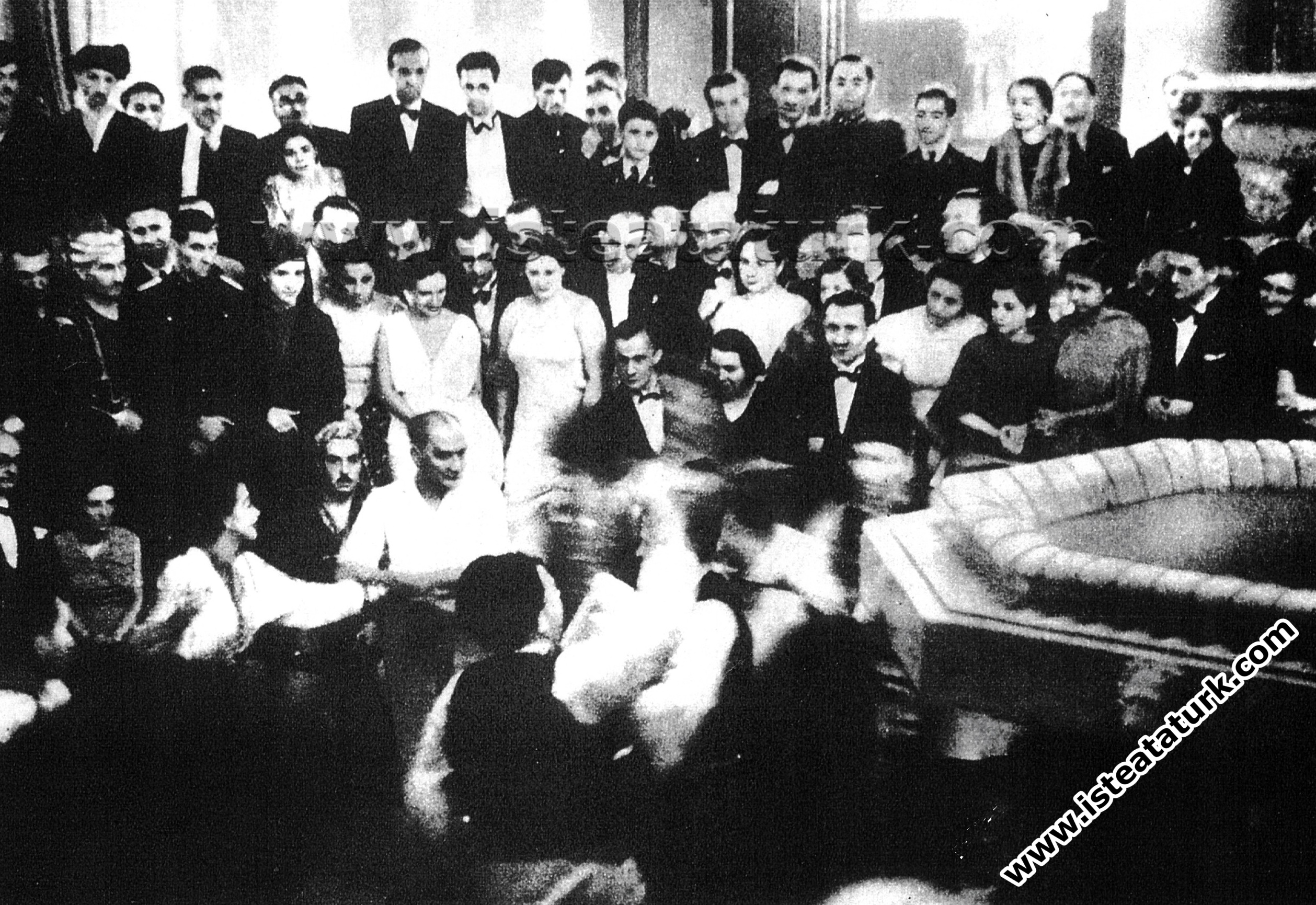
The Hardest of Revolutions
Character Size
“Music revolution, the most powerful of revolutions” Mustafa Kemal Atatürk
The Hardest of Revolutions
It was one of the evenings I was at Ata's table, which is a headquarters of free ideas. Atatürk, as usual, was raising questions and problems, and there was a wide exchange of ideas in an atmosphere of free discussion. Later in the evening, he suddenly asked us one of his most interesting questions. That question was: “Which is the most powerful of our revolutions?” To be honest, we didn't think we'd be asked such a question. All sorts of thoughts began to mingle in my head. The first answer that came to my mind was that the most difficult revolution was the "revolution of secularism". As a matter of fact, when it was my turn to answer, I expressed this. Ataturk did not like this. Even other friends did not find the answer they gave correct. After making us wait for a long time, he answered the question himself: "The most powerful of the revolutions is the music revolution," he said. Then he began to explain his mind. “Because, he said, this revolution requires renewing one's inner world. The musical revolution meant leaving the emotions that he had been accustomed to and loved until that moment, and instilling a new world in his brain.” I have to admit that this answer seemed a little foreign to me at first. But come and go, as I think and research, I agree with Atatürk. Because the common area of the contemporary culture we turned to was contemporary polyphonic music. Without adopting this, modernization was impossible. The only common element of the Germanic, Slavic, Anglo-Saxon and Latin cultural environments of the West was polyphonic music. It was imperative for a society that decided to become modern to participate in this great cultural heritage. It should not be forgotten that it is a fact that the contemporary cultural environment is not the monopoly of any nation. The elements of this common cultural environment are Greco-Latin cultural heritage, Renaissance, Rationalism and finally the 19th century. They are the positive sciences that have grown since the 19th century. As a result of our destiny and history, we could not adopt these cultural elements in time. Contemporary polyphonic music is the fusion of all these cultural elements.
Now there is a seemingly very strong objection to this view, which has been raised for almost a century and still continues. Would this turn to this great human cultural heritage cause a malfunction in our national culture? Against this, the following answer can be given: It cannot be ignored that there is a Slavic, a Germanic and a Latin culture and especially music that reflects local characters in this common cultural world. Contemporary polyphonic music has given sounds a much broader expressive and reflective power. Depriving our own music of this possibility cannot be called nationalism. On the contrary, in order to develop and root our own national culture, we should embrace the possibilities of expression created by the human mind in all its breadth. There is no doubt that the polyphonic music system has a much wider expression opportunity than the monophonic system. In this respect, a real modernization can only take place with the adoption of contemporary music possibilities. However, this debate did not end after Atatürk. On the one hand, there are those who believe that all kinds of modernization will lead to a departure from the characters of our national memory, and on the other hand, there are those who adopt all the possibilities and methods that have created contemporary culture as much as possible. The resistances against this idea continue today as they existed in Atatürk's era. For this reason, the music revolution, which Atatürk described as the most powerful of the revolutions, still has not been fully realized. The late Atatürk once again showed the sparks that appeared in his eyes while describing his great decisions and said: However, this debate did not end after Atatürk. On the one hand, there are those who believe that all kinds of modernization will lead to a departure from the characters of our national memory, and on the other hand, there are those who adopt all the possibilities and methods that have created contemporary culture as much as possible. The resistances against this idea continue today as they existed in Atatürk's era. For this reason, the music revolution, which Atatürk described as the most powerful of the revolutions, still has not been fully realized. The late Atatürk once again showed the sparks that appeared in his eyes while describing his great decisions and said: However, this debate did not end after Atatürk. On the one hand, there are those who believe that all kinds of modernization will lead to a departure from the characters of our national memory, and on the other hand, there are those who adopt all the possibilities and methods that have created contemporary culture as much as possible. The resistances against this idea continue today as they existed in Atatürk's era. For this reason, the music revolution, which Atatürk described as the most powerful of the revolutions, still has not been fully realized. The late Atatürk once again showed the sparks that appeared in his eyes while describing his great decisions and said: The resistances against this idea continue today as they existed in Atatürk's era. For this reason, the music revolution, which Atatürk described as the most powerful of the revolutions, still has not been fully realized. The late Atatürk once again showed the sparks that appeared in his eyes while describing his great decisions and said: The resistances against this idea continue today as they existed in Atatürk's era. For this reason, the music revolution, which Atatürk described as the most powerful of the revolutions, still has not been fully realized. The late Atatürk once again showed the sparks that appeared in his eyes while describing his great decisions and said:
“Yes, this revolution is very difficult. But it will certainly be done.” Unfortunately, the shortness of his life had caused this great move not to be fully realized. As he could not see this revolution, the next generations are still in doubt. But this hesitation is impossible to understand. The polyphonic expression method in music is one of the most important tools created by the human mind and spirit. It is not permissible to deprive our national music and culture of this instrument. As a matter of fact, it has been going on for a century to turn to these contemporary possibilities in our literature and contemplation arts, which is a branch of art like music, and of course it has yielded very beneficial results. Making this development in our music is possible if we turn to polyphonic music with full sincerity. In our literature, Thanks to the adoption of contemporary expression possibilities in our contemplation arts and positive sciences, we have reached our present level. Undoubtedly, if this development had started earlier and applied more sincerely, we would be in a more advanced position in the branches of general culture today. Failure to apply this principle to music cannot be justified. It is a delusion that our music will cease to be national in this way, and it is the main obstacle to the development of this magnificent branch of art. At the meeting I mentioned, Atatürk explained them one by one and after pointing out the difficulty of this revolution, he said: “For these reasons, the music revolution is the most difficult one. But despite this difficulty, this revolution will definitely be made.” I should add that Atatürk, who was determined to bring contemporary possibilities to our music, was one of those who knew the names of our music best and loved them the most.
The conversation that evening was the expression of an opinion that warned me about this.
Bringing the contemporary polyphonic system to our music will not result in a regression or forgetting, but rather a profound development and rooting. When this result is fully realized, those who oppose it today will sincerely and sincerely embrace it. What is at stake is to open new horizons for our own musical culture with new possibilities. Of course, all of us who love our music are waiting and missing this development.
Ord. Prof. Dr. Sadi Irmak
Source: ATATÜRK ARAŞTIRMA MERKEZİ DERGİSİ, Sayı 11, Cilt IV, Mart 1988
